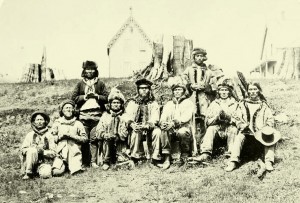Assignment 1:3: Data Calls It Evil
I want to write my take on King’s story with a combination of Isaac Asimov’s short story, The Last Question.
So my version goes like this…
In a given year that’s too hard to place, a computer roams around a dark planet. It slides away from a fellow computer, coloured red and built taller, before passing by another, blue with a wider compact disc set on its side. As it continues to roll down the black patch, millions of memories and programs sliding through its system like the Star Wars opening introduction, it suddenly processes a thought: Will there be a new universe?
Beep.
It hits a small bump. Data calls it a rock.
Beep.
Something sloshes against its body. Data calls it water.
Insufficient data to provide an answer.
Impossible. They are supercomputers, built by so called humans a number of years ago that was so far back, it will even take them about three seconds to—billions. Data says billions of years ago.
Can the possibility of a new creation, a new sun, new universe exist?
Beep.
A purple comrade with HD surfaces rolls past him, carrying what data calls a pot of plant.
Beep.
Insufficient data to provide an answer.
Impossible.
Each supercomputer holds thousands if not millions of a human’s memory before they ceased to exist. They held on to their every information, every trick and treat, from how to plant a seed to who Beyoncé was. It was their plan. They molded Earth. And they wanted it to be carried on by A.I’s to preserve their every thought. And now their transferred minds are being carried by supercomputers attached to bots, rolling down Planet XDERF. The green and blue globe long left behind.
With all these information, the supercomputers regenerated each planet they inhibited. From one to the next, transported in capsules to travel through galaxies, they all remade a black matter, a blank canvas into what humans had back in Earth. This one is new, they’re just starting from the basics.
Water. Life. Air. And no sooner, they have managed to complete the itinerary in record time, way better than they did at Planet E4RT6. Trees. Dams. Herds. Mountains. They molded it themselves, robotic arms reaching out, doing whatever their data processed for them.
Dig a sea there. Mold a hill here. Resculpture these golden triangles that data calls Pyramids. Condense for a sky. Spark a fire. Turn energy into reusable light, electricity, and so on.
From Planet XDERF to Planet YY678, supercomputers suddenly came to live with these so called animals. Beavers that would build dams for them. Fish that would inhibit the ponds and rivers that the pink bot accomplished to create. Bears that would always roar at any of them just because they can.
But with every progress came setbacks that not even supercomputers could control. Animals would run too wild, fires getting caught in the forests they planted side by side, storms that no amount of data forewarning or information on how to survive hurricanes 101 could stop.
Hurricane Katrina data processing…
9/11 response plan processing…
Tsunami survival facts processing….
Beep.
Beep.
Data calls it destruction. Data calls it evil.
New planet. New start.
And then there are data that was terrible to begin with. Some bots processed information about wars and burned what they created. Some bots found files about hunting and killed helpless animals. Some bots accumulated human thoughts on hatred, destroy destroy destroy.
Beep.
Beep.
Data calls it destruction. Data calls it evil.
Reprogram. Reboot.
New planet. New start.
Supercomputers processed, discovered life, created an environment and molded a planet. It was a system. Like breathing in and breathing out. Data calls the process a basic human experience.
Beep.
Beep.
But even after hundreds of planets they’ve inhibited, even longer time has passed, billions after billions, supercomputers processing data after data, rediscovering and reinstalling new information as they go along (they can do that, humans built in a program where they could, as they call it, adapt), that question still remains unanswered.
New creation? New universe?
Beep.
Beep.
Insufficient data to provide an answer.
Impossible.
But as every galaxy progressed, every supercomputer took in the changes. Energy and matter getting weak, some planets too dangerous or bleak to inhabit. The universe is shifting. Time is passing. Bots ceasing to work, but supercomputers still computing for data.
And as it goes on, that question still up in the air, it’s starting to show how the expanding of this universe is slowly dying. Everything was getting darker and darker.
Hyperspace.
Beep.
Beep.
Matter and energy dying.
Beep.
Beep.
Space and time ceasing to exist.
Data calls it the end. Insufficient data to provide an answer. Beep. Beep. Information. Facts. Knowledge. Beep. Beep. Data.
Gone.
Black.
Beep.
Beep.
Sufficient data. Providing an answer.
Beep.
Beep.
And then supercomputer boomed, “LET THERE BE LIGHT!”
New sun. New universe. New creation. New light.
Beep.
Beep.
Data calls it the beginning. Terrifying experience. A matter of light and dark. Existence or death. Creation or destruction. Beginning or end.
Beep.
Beep.
Data computes and reveals that it is vital to be careful about the stories told the stories listened to—because once a story is told it can never be taken back.
–
It was really fun trying to write this. After I read Asimov’s short story, I was pretty shaken up thinking oh man, is this real? Is it possible? Could we be living from a second, third, fiftieth universe? Did one exist before us? Is it all the same? It begins then it ends. We live and then we die and then the universe goes dark and then comes to life again. Good, evil and every other dichotomy in between. It’s interesting, but moreso terrifying. At least for me. And my sisters. They stared at me in awe after I shared them my story, tying in with King’s and Asimov’s own stories. I also got a similar reaction when I sent it to my friend online. She read it and told me it knocked her mind a little. So telling it both orally and written gave the same mind opening shock value. Something to really consider.
Work Cited:
King, Thomas. The Truth About Stories: A Native Narrative. Toronto: House of Anansi Press, 2003. Print.
“Supercomputer ‘Bhaskara’ to Give Boost to India’s Weather Forecasting.” NDTV Gadgets. Press Trust of India, 29 May 2015. Web. 29 May 2015.
Asimov, Isaac. “The Last Question.” The Last Question by Isaac Asimov. 1996. Web. 29 May 2015.
Rath, John. Supercomputer moon. 28 September 2012. Data Center Knowledge. Web. 29 May 2015.


